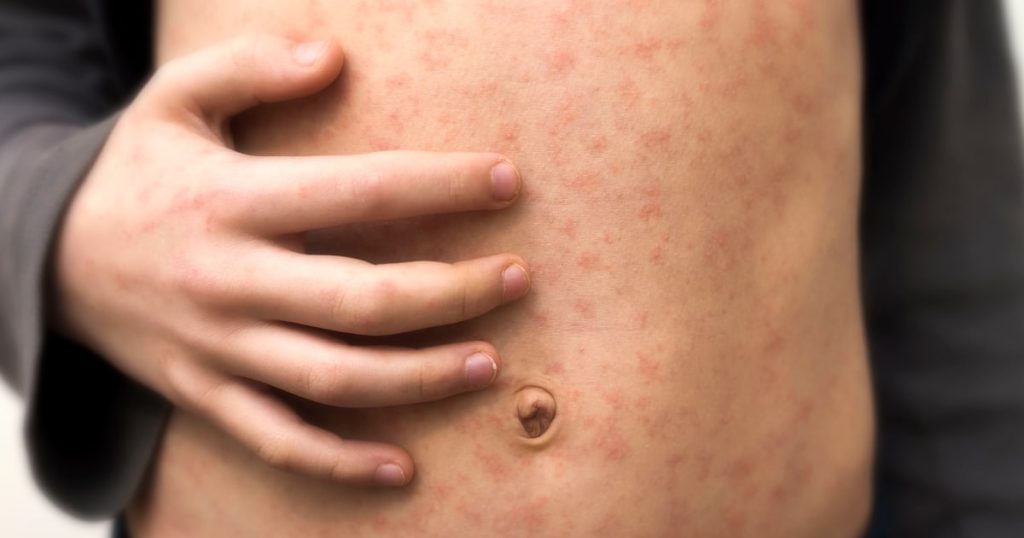The number of measles cases in the U.S. in 2024 is rising, with 64 new cases identified by the Centers for Disease Control and Prevention. The CDC is urging parents to vaccinate children, especially if they plan to travel abroad. Many of the cases in the U.S. have been linked to international travel, with several countries experiencing measles outbreaks. The U.S. had previously eradicated measles more than 20 years ago, but cases have been increasing due to falling vaccination rates.
At least 17 states have reported cases of measles this year, highlighting the importance of vaccination to prevent outbreaks. Globally, measles cases were up 79% in 2023 compared to the previous year, emphasizing the need for prevention measures. Dr. Sandra Kemmerly, an infectious diseases specialist, warns that measles is highly contagious and can spread quickly without vaccination. Understanding measles symptoms, vaccination, and precautions can help protect individuals.
Measles was declared eradicated in the U.S. in 2000, but cases have been on the rise in recent years. The COVID-19 pandemic contributed to missed vaccinations, and anti-vaccination sentiment is increasing, leading to a resurgence of measles. European and Western Asian countries have seen a significant increase in measles cases, with numbers continuing to rise in 2024. Outbreaks have been reported in several U.S. states this year, highlighting the global nature of the virus.
The CDC has reported a rise in measles cases in the U.S. in 2024, with outbreaks occurring mostly in unvaccinated individuals following international travel. The decline in vaccination rates globally has increased the risk of larger measles outbreaks. Due to the COVID-19 pandemic, many children missed vaccinations, contributing to the current rise in cases. The anti-vaccine movement and record-high school vaccination exemptions have further exacerbated the situation.
Measles has specific stages of infection, with symptoms appearing over two to three weeks. The contagious virus can spread easily through the air, making prevention through vaccination critical. Symptoms include cough, runny nose, watery eyes, and a distinctive rash that develops three to five days after initial symptoms. Complications are more likely in unvaccinated individuals, especially children under five years old. Identification of measles symptoms and prompt vaccination are crucial for prevention.
The measles rash is a prominent symptom of the virus, characterized by small raised bumps that spread over the body. The rash typically lasts about a week and is highly contagious. Measles symptoms can resemble other illnesses, making testing necessary to confirm a diagnosis. Vaccination with the MMR vaccine is highly effective, providing long-lasting protection against measles. Children, adults, and international travelers should receive the vaccine to prevent the spread of the virus.
Measles is highly contagious and can be spread through close contact, sharing food or drinks, and touching contaminated surfaces. The virus remains contagious for up to four days before and after the rash appears. Vaccination is the best method for preventing measles outbreaks, as the MMR vaccine provides high levels of protection. Adults who are unsure of their immunity status can undergo testing to determine if they need vaccination. Vaccination is recommended for children, students, adults, and international travelers to prevent the spread of measles.


